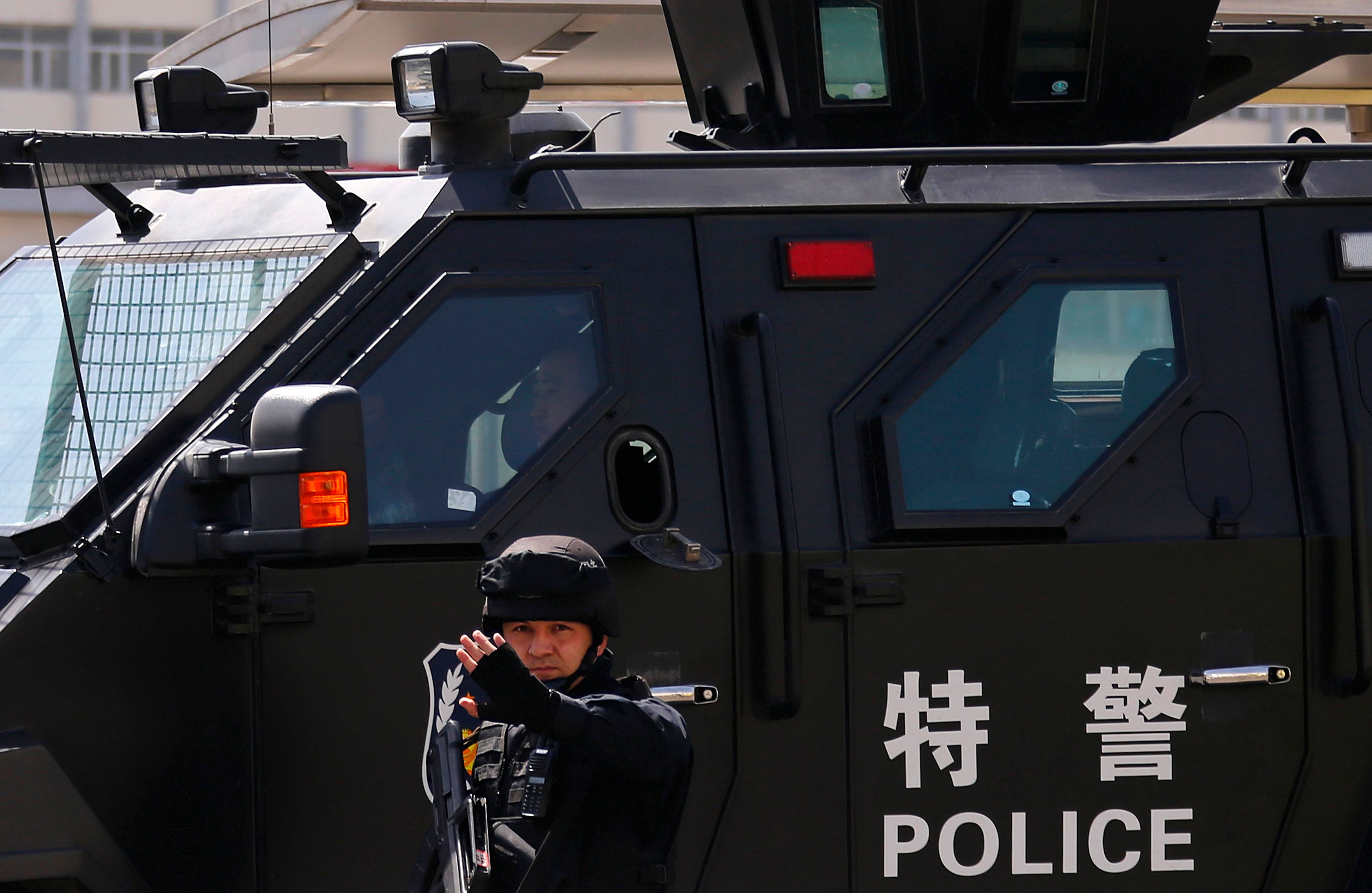The summertime lull is an opportunity to slow down and contemplate the big questions: What is a terrorist? Is the Caspian Sea a lake? And is a trout a salmon? The first question is deadly serious. The second determines which countries have a legal claim to vast natural resources. The third is absurd. But they all have one thing in common: they show how definitions affect politics in ways both big and small.
Uighurs in China: In 2009, violence broke out in Xinjiang province in western China, where millions of Uighurs, a Muslim minority, have long bridled under Communist rule. Nearly 200 people, most of them ethnic majority Han Chinese, were killed as a result. A crackdown ensued. Car bombs followed. The crackdown intensified. Most recently, China has been accused of turning Xinjiang into a surveillance state and engaging in systematic repression of Uighurs. On Monday, Chinese officials appeared before a UN panel to rebut allegations that more than a million people had been forced into “re-education centers.” No such thing, they argued: Sure, there are “Vocational Technical Education Training Centers,” where minor offenders receive instruction. But the authorities in Xinjiang are operating within the law, doing what any government would do: providing security in a region prone to terrorist violence. Needless to say, there are big assumptions built into any government's decision to identify enemies of the state.
The Caspian Sea: Over the weekend, the leaders of Russia, Iran, Kazakhstan, Azerbaijan and Turkmenistan signed a pact designed to resolve a long-simmering debate about whether the Caspian Sea is, in fact, a lake. The distinction matters: the Caspian is home to enormous deposits of oil and gas, the fish that produce 90 percent of the world’s caviar, and a tangle of sometimes-conflicting territorial claims. If the world’s biggest inland body of water is in fact a sea, as its name implies, then the five countries that border it would have claims to some parts of it, while others would be considered international waters under maritime law. Either designation creates winners and losers. Russia, for example, wants its navy to be able to freely navigate much of the Caspian while opposing other countries’ efforts to build energy pipelines across it that would undermine its grip on the region’s energy flows. The solution? An epic fudge that divides up the surface according to the law of the sea while divvying up the lakebed between the five countries. The lesson: don’t let strict definitions stand in the way of a deal.
Trout vs salmon: Back in May, Chinese state television broke the story of an epic bait-and-switch: it turned out that up to a third of “salmon” sold in China was actually trout, the salmon’s freshwater cousin. In a controversial move, an industry organization attached to China’s Ministry of Agriculture this week officially blessed the practice, saying that trout could be labelled as salmon since they were both part of the Salmonidae fish family (apparently, the group has requested that restaurants and fishmongers also identify the precise species being sold under the new catch-all salmon label, presumably in the fine print). This is patently absurd. “There’s no way a trout is a salmon, and that's a hill I’m ready to die on,” was Alex Kliment’s response on hearing about this story on Tuesday. But how governments define food is a serious issue in global politics: The French guard their appellations like some countries guard their nuclear codes, and the European Union has long been at odds with the US over genetically modified foods. In China, the fundamental tension involves a government and industry trying to define away the difference between what people are getting (trout dressed up as salmon) and what people actually want (the real thing). It’s a good bet that Chinese consumers can taste the difference between trout and salmon, and the market will sort this out. Even in China, top-down control has limits.
